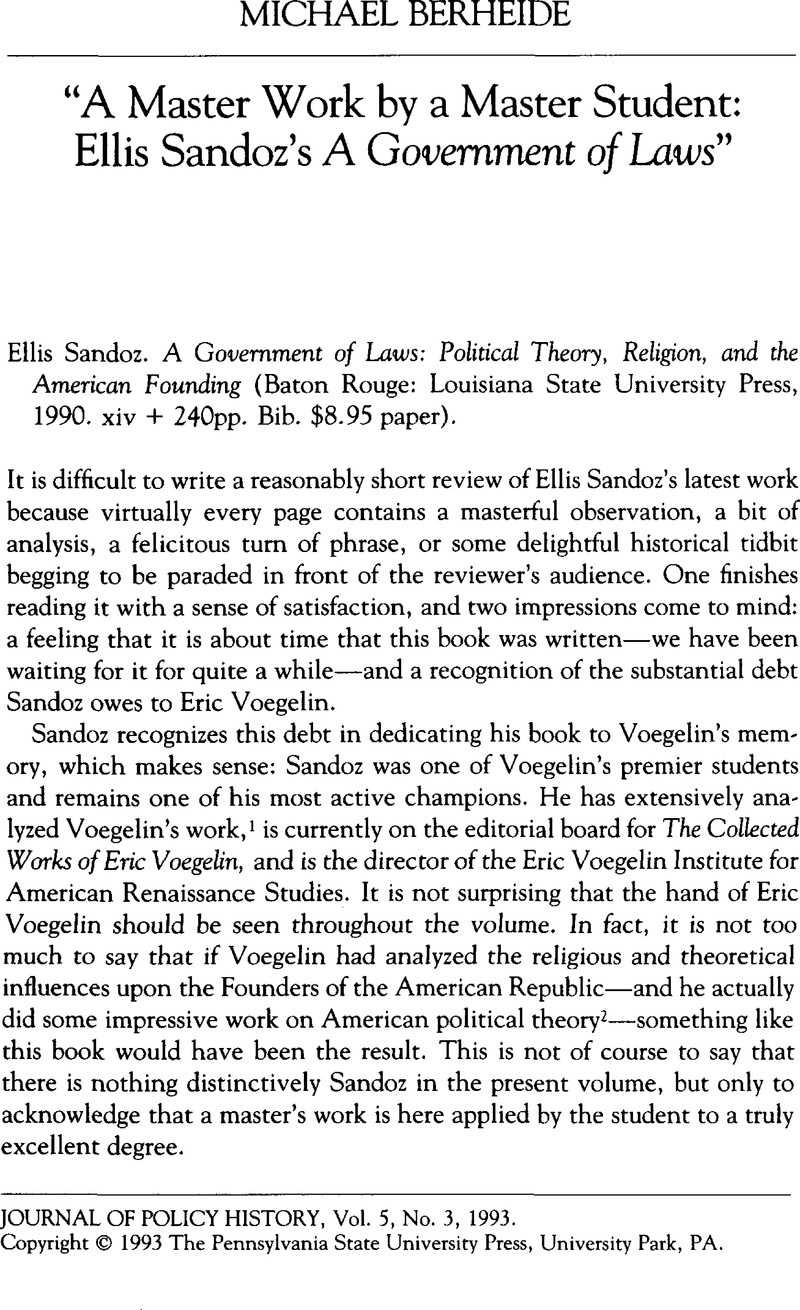No CrossRef data available.
Article contents
“A Master Work by a Master Student: Ellis Sandoz's A Government of Laws” - Ellis Sandoz. A Government of Laws: Political Theory, Religion, and the American Founding (Baton Rouge: Louisiana State University Press, 1990. xiv + 240pp. Bib. $8.95 paper).
Review products
Published online by Cambridge University Press: 14 October 2011
Abstract

- Type
- Book Reviews
- Information
- Copyright
- Copyright © The Pennsylvania State University, University Park, PA. 1993
References
Notes
1. Sandoz, Ellis, “Voegelin's Idea of Historical Form,” Cross Currents 12 (1962): 41–63Google Scholar; “Eric Voegelin and the Nature of Philosophy,” Modern Age 13 (1969): 152–68Google Scholar; “The Foundations of Voegelin's Political Theory,” Political Science Reviewer 1 (1971): 30–73Google Scholar; “Voegelin Read Anew: Political Philosophy in the Age of Ideology,” Modern Age 17 (1973): 257–63Google Scholar; and The Voegelinian Revolution: A Biographical Introduction (Baton Rouge, 1981).Google Scholar
2. Cf. esp. Voegelin, Eric, Über die Form des amerikanischen Geistes (Tübingen, 1929).Google Scholar
3. James, William, A Pluralistic Universe, in Perry, Ralph Barton, ed., Essays in Radical Empiricism: A Pluralistic Universe (Gloucester, 1967), 263. Quoted in the work under review, p. 83.Google Scholar
4. Cf. Sandoz, Ellis, ed., Political Sermons of the American Founding Era, 1730–1805 (Indianapolis, 1991).Google Scholar
5. Voegelin, Eric, Order and History: Israel and Revelation (Baton Rouge, 1956), viii.Google Scholar
6. Cf. esp. Voegelin, Eric, The New Science of Politics: An Introduction (Chicago, 1952)Google Scholar; idem, Science, Politics, and Gnosticism (Chicago, 1968).Google Scholar
7. Ostrom, Vincent, The Meaning of American Federalism: Constituting a Self-Governing Society (San Francisco, 1991).Google Scholar
8. Bell, Roderick A. and Edwards, David V., American Government: The Facts Reorganized (Morristown, N.J., 1974), 7–8.Google Scholar
9. Cf. Bailyn, Bernard, The Ideological Origins of the American Revolution (Cambridge, 1967).Google Scholar
10. Popper, Karl R., The Poverty of Historicism (New York, 1964), 66.Google Scholar


